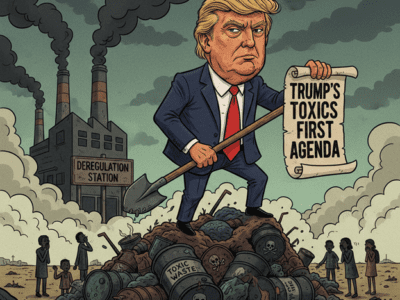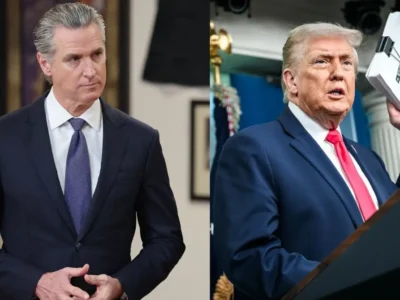Trump and Fossil Fuels
How much has Trump helped fossil fuel production? Not as much as he probably thinks. But enough to make climate change worse.
Trump has a single energy policy: expand production and use of fossil fuels. That also dictates his environmental policy, which is to eliminate any regulation that might get in the way. How much effect has his love affair of fossil fuels had? Short answer: not as much he thinks, but more than environmentalists would like.
As I wrote in August, he’s had no luck at all with coal. This year is abnormal because of the pandemic, but even after a hoped-for recovery in 2021, coal use in the U.S. will be a third less than it was the day Trump took the oath of office. It likely would have fallen even more without him, but that’s not much of a win for him.
Oil production rose steadily under Trump until the coronavirus hit. It was following a trend line that began in 2011 under Obama. If Clinton had won, maybe the production would have grown more slowly than it did under Obama. But the best Trump could say is that he continued the Obama trend. The increase has been due to “unconventional oil,” meaning fracking, which dropped production costs dramatically.
That leaves natural gas. In Trump’s favor, the natural gas production leapt upwards in 2018 and 2019, although it had been increasing steadily for many years. Part of that recent leap may be demand-driven, as lower prices incentivized the construction of more natural-gas power plants, often replacing coal-fired plants. Part of it was on the supply side, as the increase in oil production brought with it an increase in associated natural gas.
It’s not clear how much Trump’s rollbacks caused these increases in oil and gas, although they may have helped (especially with oil). But we also have to ask about the counterfactual: If Clinton had won in 2016, what would have been the effect on fossil-fuel production?
The answer is simple: Under Clinton’s climate plan, fossil fuel production would have been lower. Coal use would likely have fallen even faster, and renewable energy would have grown more quickly. Because of the increase in renewables, the upward trend for natural gas would have slackened as its U.S. market grew less quickly. It’s also likely that oil production would not have grown as quickly due to restrictions on new oil and gas leases on federal lands and offshore. The difference between the energy mix under Trump and the hypothetical energy mix under Clinton would not have been day and night, but it could have been substantial.
In short, in terms of oil and gas, Trump cleared the path for where the markets were heading anyway, where Clinton would have created headwinds. He may also have stopped coal from falling quite as quickly as it otherwise would have. In terms of economic effects, the renewable sector would have grown more quickly under Clinton, dampening any net effect from Clinton’s policies on the economy as a whole.
Whether or how much Trump’s energy policies helped the economy is unclear. Still, as compared with Clinton, he can probably can take credit for the emission of hundreds of millions of tons of extra carbon into the atmosphere.
Reader Comments
One Reply to “Trump and Fossil Fuels”
Comments are closed.






EPITAPH FOR THE HUMAN RACE
Here lies the human race because academics failed to inform, educate and motivate the public to prevent politicians from selling us out to the power of money that destroyed the human race with climate changes, pandemic, violence and inequalities.